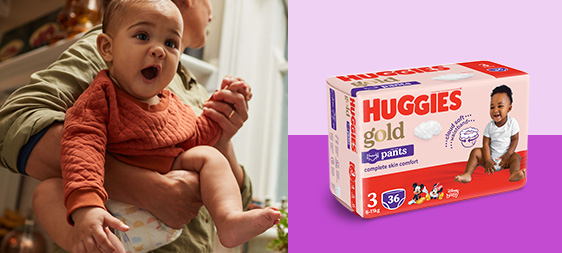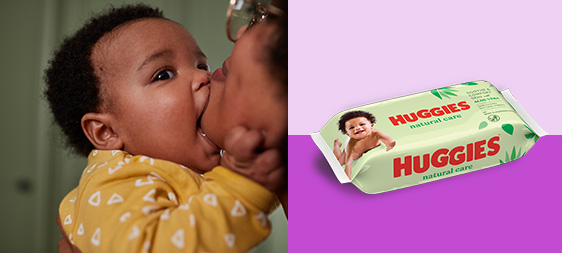Just as in other aspects of life, parents have choices when it comes to raising their children. Many parenting styles have emerged over the years, but essentially four main ones have stood the test of time.
These are:
Authoritarian Parenting
Authoritative Parenting
Permissive Parenting
Uninvolved Parenting
Many factors influence children. It is clear that their individual qualities have as much to do with how they evolve into adults as other causes. Their home environment, gender, genetics, personality, temperament and early life experiences all play important roles.
Parents do impact on their children’s development, but exactly how much is still unclear. Even children who are genetically similar and who received the same parenting, such as siblings, can emerge very differently as adults.
Ultimately, it seems that a child’s personality and resilience play a major role in how they are shaped by their early life.
No matter what parenting style is used, there are some very important factors which link parenting approaches and how these affect children. How children are disciplined, the degree of parental warmth and nurturing, communication, and the parents’ expectations of their children are all important. Based on how much, or how little, of these factors the child is exposed to will determine which parenting style will emerge.
1. Authoritarian parenting – what is it?
Authoritarian parents see their way as the only way. They tend to be strict, regimented and ultimately in control of their children all of the time. They have a tendency to develop strict rules, which they expect the child to adhere to. Having an alternative point of view or being open to a little flexibility just isn’t on their radar. When the child fails to comply with their parent’s strict rules, there is usually some form of punishment.
Authoritarian parents also see their children’s successes in life as a direct result of their control. The parent’s sense of identity is strongly based on their child’s achievements and successes. It is common for them to boast about their children’s attainments, and exhibit competitiveness and jealousy if they feel their child is being challenged by another.
Characteristics of authoritarian parents:
Rules are set and the child is expected to stick by them. Punishment is generally meted out for failure to adhere to the rules.
There is no leniency or allowance made for the child. They are expected to “be good” and do as the parent wishes all of the time.
The child’s opinions are not considered important. Domination is common, so there is an unequal power balance.
They tend to be goal-oriented and task-focused.
Fear, guilt, anxiety and obligation to meet their parent’s expectations motivate the child.
They expect their wishes to be carried out “because I said so”.
Authoritarian parents tend to either have been parented in the same way and don’t know there is an alternative, or they can come from a permissive parenting style and want more control over their own children.
They tend to mete out punishment that is harsh and punitive. They can be very stern about minor issues and overreact over the smallest of things.
They tend to extend this type of control into their other relationships.
They often hold positions of power in their workplace or, alternately, feel as if they are being overlooked for managerial positions. Having this type of authority at home is seen as a substitute.
Yes, but does it work?
Authoritarian parenting does not work. Although it can make parents feel better in the short-term, it does nothing for building and sustaining healthy, long-term relationships (it is also exhausting to sustain). It is only possible to be authoritarian when children are small and more compliant. There comes a time when their parent’s opinion of them is simply not as important and they need to (and will) forge their own path. For many children of authoritarian parents, running away or “going off the rails” is common when the parental restraints come off.
Authoritarian parenting does not celebrate the simple, middle of the road achievements of most children. Excellence is seen as the only yardstick and anything less than this is not to be tolerated. Being mediocre – although common for most of us – is simply not an option. This often leads to low self-esteem in the child.
Rather than creating better-behaved kids, authoritarian parenting can actually work in the reverse. It doesn’t teach the child how to motivate themselves and learn skills in self-discipline and self-control (as they only need to “behave” themselves when observed). They don’t learn the all-important concepts of effort invested equals rewards; and so when they are adults, they can struggle to reach their potential or express themselves as individuals.
Another issue is that when the child needs extra emotional support, they tend to see their parent as incapable of giving it. Nurturing and empathy are not high on the parent’s scale of what is important and they are thus not seen as a source of comfort by their child.
There is also a higher incidence of bullying in children who are raised by authoritarian parents, as fear has replaced empathy as a motivator for their behaviour. Anger issues and depression are also more common in these children.
2. Authoritative parenting – what is it?
Parents with an authoritarian parenting style also establish rules and guidelines for their children. However, this parenting style is much more democratic. Authoritative parents monitor and impart clear standards for their children’s conduct; they are assertive, but not intrusive or restrictive.
Disciplinary methods of authoritative parents are supportive, rather than punitive. These parents would like their children to be assertive, as well as socially responsible, self-regulated and co-operative.
Characteristics of authoritative parents:
They are responsive to their children and willing to listen to questions.
When children fail to meet expectations, these parents are more nurturing and forgiving, rather than punishing.
They also have rules that children are expected to follow, and can also be strict, but they allow some exceptions to the rule. They often tell their kids the reasons for the rules and are more willing to consider a child’s feelings when setting limits.
Authoritative parents tend to use consequences instead of punishment – i.e. negative consequences (like time-outs or having your privileges revoked) for bad behaviour and positive consequences (rewards or praise) to reinforce good behaviour.
They are more willing than authoritarian parents to use reward systems and praise.
They are attentive and teach their children proper behaviour.
Yes, but does it work?
Definitely. Children raised with authoritative discipline tend to be happier and more successful. They are often good at making decisions and evaluating safety risks on their own. They usually grow up to be responsible adults who feel comfortable expressing their opinions, in a respectful way.
3. Permissive parenting – what is it?
Permissive parents, sometimes referred to as indulgent parents, have very few demands to make of their children. They rarely discipline their children, because they have relatively low expectations of maturity and self-control.
Permissive parenting is non-traditional and lenient, and allows for considerable self-regulation. While these parents clearly love their children, and are generally nurturing and communicative with them, they often take on the status of a friend, more than that of a parent.
Characteristics of permissive parents:
They don’t have a lot of (or any) expectations of their children, and often allow them to make their own decisions.
They are more responsive than demanding, and tend to avoid confrontation.
Permissive parents do not offer much discipline to their children. They tend to be very lenient and only step in when there is a serious problem – their attitude is often “kids will be kids”.
They take on more of a friend role, than a parental role. On the one hand, they encourage their kids to talk to them about their problems and issues, but they may not discourage a lot of bad behaviours.
They are indulgent and let their children get away with a lot.
Yes, but does it work?
It can work, but a lot of children that grow up with permissive parents tend to struggle academically. While self-regulation is great in theory, children generally do require some boundaries and type of routine to thrive. Some children of permissive parents may crave more structure in their life, while others embrace the anarchy and grow up not appreciating any form of authority or rules.
4. Uninvolved parenting – what is it?
An uninvolved (or neglectful) parenting style is characterised by few demands, low responsiveness and little communication. While these parents may fulfil the child’s basic needs, they are generally detached from their child’s life. Uninvolved parents tend to be neglectful, expecting their children to raise themselves. Sometimes, this is due to a parent’s mental health issues or a substance abuse problem.
Characteristics of uninvolved parents:
They neglect their offspring and put their own life before the child’s.
If they do provide for their children’s basic needs, they still show little interest in or interaction with them.
In extreme cases, these types of parents may even reject or neglect the basic needs of their children, like food or the right to a basic education.
Sometimes, neglectful parents lack knowledge about parenting and child development, or may feel overwhelmed by life’s other problems.
They tend to have little or no knowledge of what their children are up to.
There are few, if any, rules or expectations.
This form of parenting definitely does not work, in any way. When parents are uninvolved, children tend to lack self-esteem, and often perform poorly academically. Because they do not receive any nurturing or guidance, and lack the much-needed parental attention and affection, children of uninvolved parents exhibit frequent behaviour problems and rank low in happiness.
Remember
Sometimes parents don’t fit into just one category. There may be times when they are more authoritarian and times that they tend to be more authoritative, and discipline strategies may vary from child to child. Also, most families have a blend of two or more of these parenting types, because often the mother and father tend to differ a little when it comes to parenting a child.
When determining a discipline strategy, it is important to think about what it is that you want your child to learn. Effective discipline strategies can teach children to become responsible adults who are able to make healthy decisions on their own.
Parenting has a large impact in a child's life and development. What we know is that a healthy development leads a child to succeed, not only in developing as a person, but building a stronger life-long bond with their parents.
Parenting is not a one-sided relationship. It is important to use our skills and knowledge to parent the children we have. Using fear, control, power and dominance to raise our children is never going to be a success. It is far better to aim for a balance of flexibility and love, and then being open to whatever qualities our children develop.




























